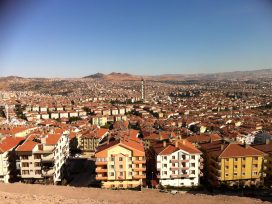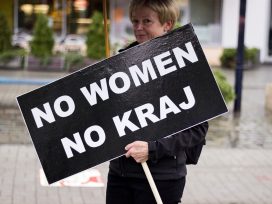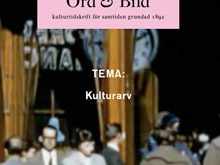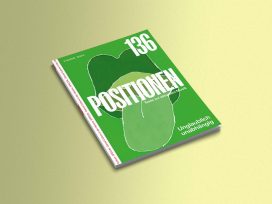Culture wars
A ‘kulturkampf’ is visible in new authoritarians’ power struggles, from rewriting history curricula in Russia, through the politics of Islamization in Turkey, to the total offensive on museums and theatres in Hungary. The consistent misrepresentation of cultures is a less spectacular but equally important means of silencing certain voices. A selection of reads on how political powers hijack culture through its institutions.
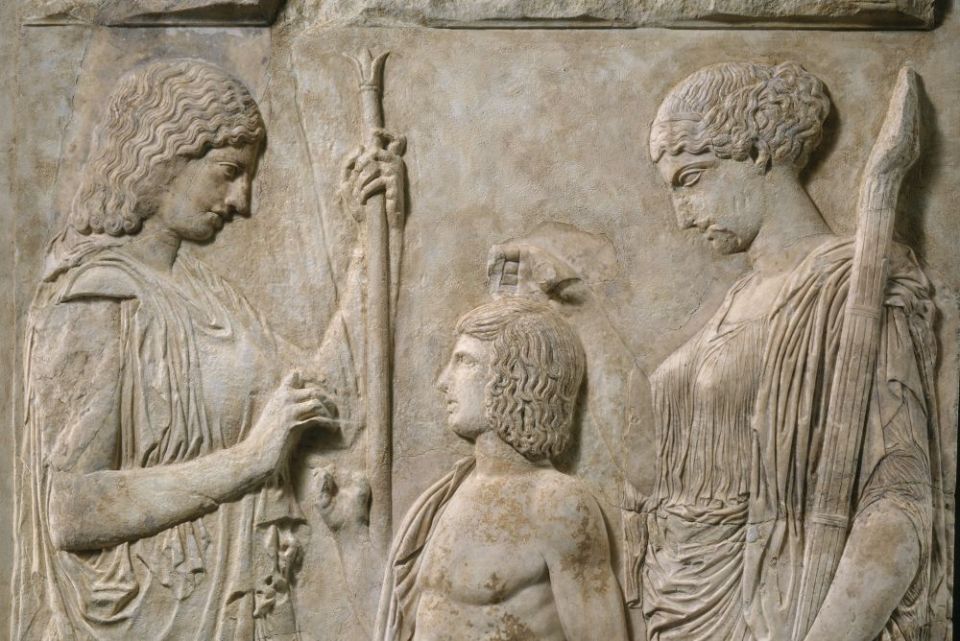
Detail of a marble fragment of the Great Eleusinian Relief, Roman circa 27 B.C. to 14 A.D. depicting Demeter, left, and Persephone, right, with a boy thought to be Triptolemos, who was sent by the goddess to teach people how to cultivate grain, in center
Photo via NCR and Metropolitan Museum of Art
Who gets to make culture – and who pays for it?
A battle for the future shape of Russia’s education system is underway. Not only is the Kremlin increasing its control over what it considers the correct version of the country’s history, there are also signs of a gradual ideological turn towards promoting the glorification of Joseph Stalin.
After the failed coup attempt in Turkey in 2016, the AKP set about securing what Recep Tayyip Erdoğan referred to as ‘social and cultural power’. Nilgün Tutal studies processes of Islamization in Ankara and Istanbul, showing how the political struggle in Turkey is about the imposition of a ‘legitimate’ cultural vision.
The Polish government’s attempt to abolish abortion rights in 2016 was one battle in a historical civil war, in a country where modernization has always been at the expense of sexual equality. After the Black Monday protests, rebellion has gone underground in art created by women.
In the pursuit of cultural hegemony, Viktor Orbán’s Fidesz government has carried out a full-scale assault on the Hungarian cultural establishment. The result is almost total conformity to the Hungarian nationalism of Fidesz and the sidelining of independent culture.
Ubu Roi in Hungary
Viktor Orbán’s ‘total offensive’ on culture
Failing to remember as a political strategy
A supposed dichotomy between Islam and Europe means that, despite the historical presence of Muslims in Europe, representations of European cultural heritage largely exclude Islam. Multiculturalist avowals notwithstanding, European museums reproduce the orientalist premises of the nineteenth century.
Carpets and ceramics
Misrepresenting Muslim cultural heritage in Europe
2017 saw the introduction of the Polish law that would criminalize any suggestion that Poland was responsible for Nazi atrocities. Historian Ferenc Laczó observes that the Europeanization of Holocaust remembrance still has a long way to go.
The Europeanization of Holocaust remembrance
How far has it gone, and how far can it go?
In publishing
Rejection of rigid Marxist orthodoxies and a strong focus on the cultural forces shaping politics and society were central to New Left thought after 1956. The British journal Soundings, co-founded by the influential New Left thinker Stuart Hall, emerged from this tradition.
‘An outrageous expansion’
Soundings, the New Left and the boundaries of politics and culture
Magazines have been used by the German far-right to integrate its ideology into acceptable political discourse. This strategy goes back to the transformation of former National Socialist networks into the so-called New Right.
Controversy shadowed the 2017 book fairs in Gothenburg and Frankfurt over the participation of far-right publishers. Following the debate on who was – and who should be – allowed to attend, four authors and decision-makers explain their stance on the issue.
This archive selection is part of our 24/2019 newsletter. Subscribe here to get the bi-weekly updates about latest publications and news on partner journals.
Published 27 November 2019
Original in English
Newsletter
Subscribe to know what’s worth thinking about.
Related Articles

The war in Ukraine is said to be the most documented war in history. But can Ukrainians ever convey their true experiences to outsiders? And can outsiders ever fully empathize? Bleak reflections of a Ukrainian cultural diplomat.

The idea that the purpose of culture is reconciliation confronts Ukrainian cultural activists with a dilemma: how to preserve one’s dignity while keeping the attention of western institutions?

